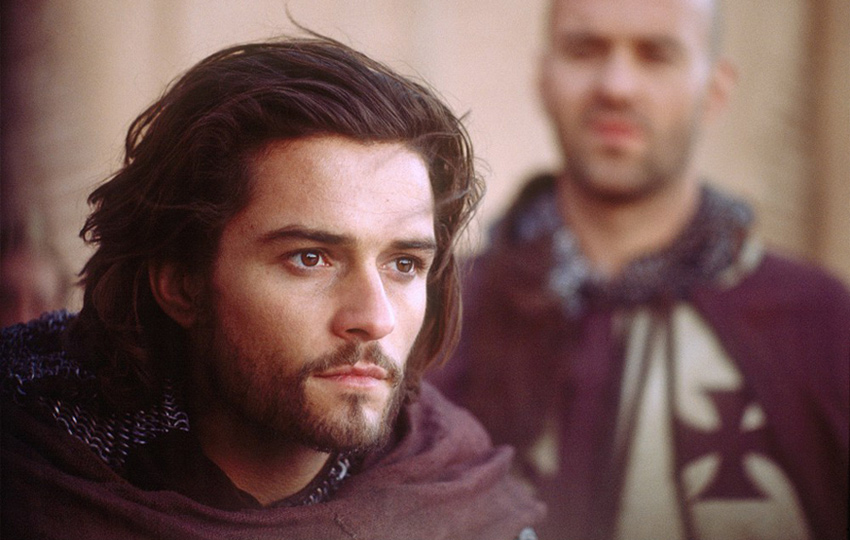
The epic represents time beyond living memory, ancient and eternal, a place reserved for the gods themselves. Sometimes man interjects himself between, around, and throughout such timeless affairs.
These matters usual concern Kings and Queens, wars, and moral decisions that affect the fate of the entire world. The mystical mixes with the historical and legends arise. However, like anything else, these anecdotal legends evolve and much of its outer facade changes with the times.
Yet much of the core remains the same as Joseph Campbell taught surrounding the myths and stories of old. Concepts such as the archetypal hero, the monomyth, and comparative mythologies. A kind of syncretism for myth and the idea that ingrained within each one of us is our own epic, our own hero’s journey. A desire to rise to the occasion. To live and die one day at a time, and too hopeful become stronger when the sun rises the next day.
Epics have been quintessential to cultures and the arts since the beginning of time. These grand tales have been told through history in many different languages and in many different forms of the craft. And when the birth of film and motion pictures entered the domain of storytelling, the epic rode in along with it.
These film epics generated collective awe and wonder that had never before been able to be visually achieved. Epic stories that galvanize audiences to this day. Here before you is a small list that is only a taste of what this rich film history has to offer in the realm of the epic masterpiece.
10. Amadeus
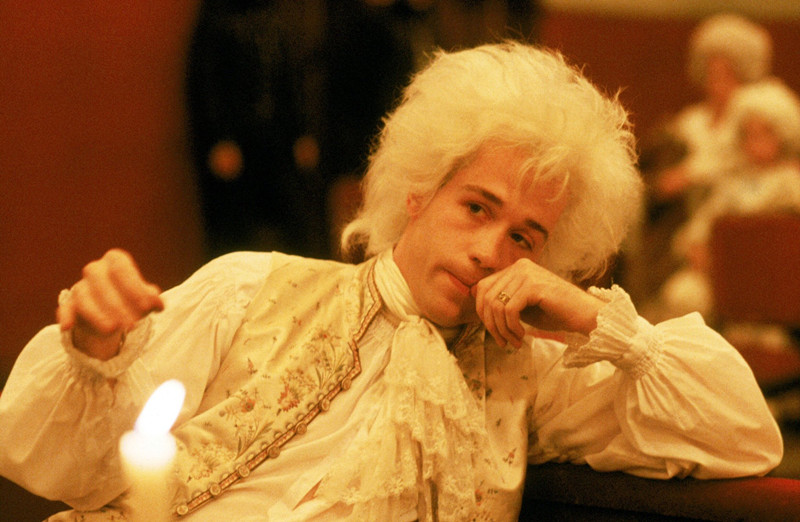
A symphony of bows meets their strings, Allegro con brio, in G minor gives way to Andante in E-flat major creating a melody and syncopation that is uniquely Mozart. But what about this old man shouting his name and claiming he is responsible for Mozart’s death.
Surely this man named Salieri was also a great composer of the time. However, his name will not be remembered in the annals of orchestration as his young rival Mozart. Thus beings the intriguing and epic story from the perspective of the suicidal and bitter Salieri.
Amadeus, directed by Milos Forman, is wonderfully shot, acted, directed and edited. The film wiped the floor at the Academy Awards with all of the above categories and rightfully so. The film is not only an artful look at the life of Mozart and Salieri but is also endlessly entertaining and can be enjoyed by most audiences.
It has been scrutinized for historical inaccuracy, and while the film does overzealously highlight certain aspects of Mozart’s life and underplay others, it remains mostly accurate to the young composer’s life. Particularly as seen through the lens of someone that hated him for most of his life.
9. Ran
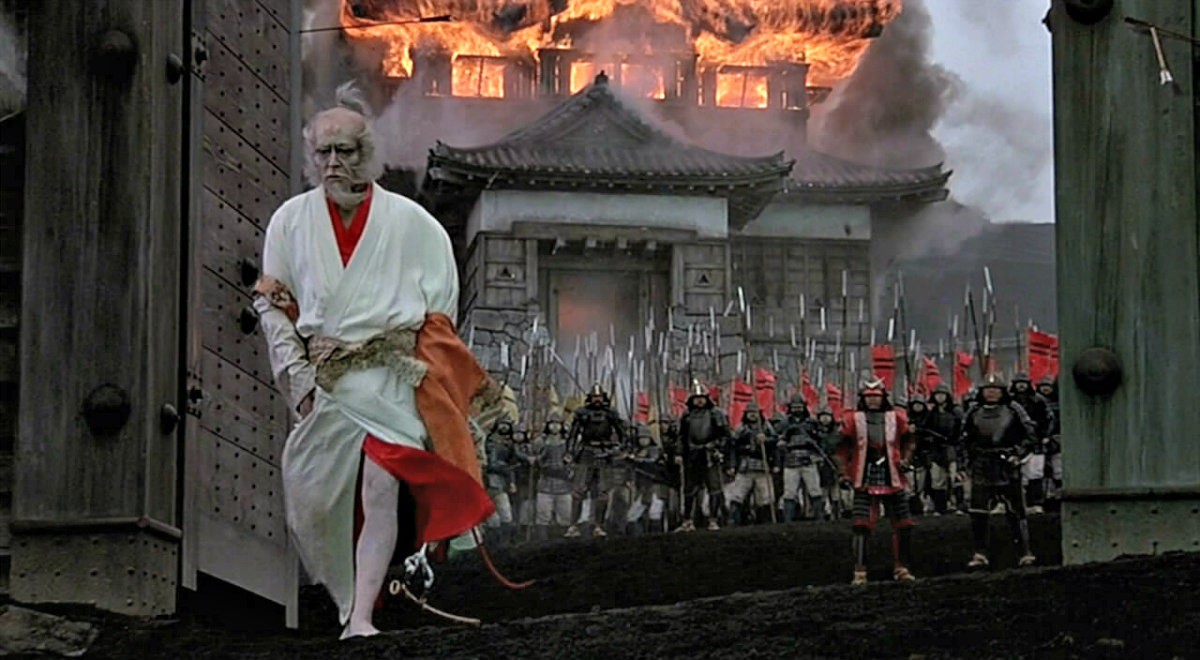
Based on Shakespeare’s King Lear, Ran, directed by the legendary filmmaker Akira Kurosawa, remains his most ambitious and most mature work ever produced within the span of an effectively abundant career.
Being his 30th film of 33, Ran is often called his last epic masterpiece and is hail as his finest work according to even his own criticism. It is a work that took over ten years to develop, crossing paths with another epic of Kurosawa’s, ‘Kagemusha,’ which he called a kind of practice film for Ran.
The film follows a powerful ruling family and an aging warlord in feudal Japan. The Great Lord Hidetora Ichimonji decides to hand over his fiefdom to all three of his sons equally, however, trouble arises due to an inevitable sibling rivalry. This rivalry is wisely recognized early by the youngest son. Still, the Lord pays no mind and to his detriment watches as his other two sons tear his kingdom apart with their greed and insatiable desire to attain power and control by any means necessary.
Ran is beautifully filmed with the colors of the war flags and the marching armies popping against the blackened trampled ground. The choreography and set pieces are still some of the best produced in any war film to date. And the direction is truly something to behold in awe.
Akira Kurosawa with this film as well as many of his earlier works such as ‘Seven Samurai,’ ‘Rashomon,’ and ‘Throne of Blood,’ has firmly placed himself among the greatest ever to produce what will rightfully be known as an epic masterpiece.
8. Kingdom of Heaven (Director’s Cut)
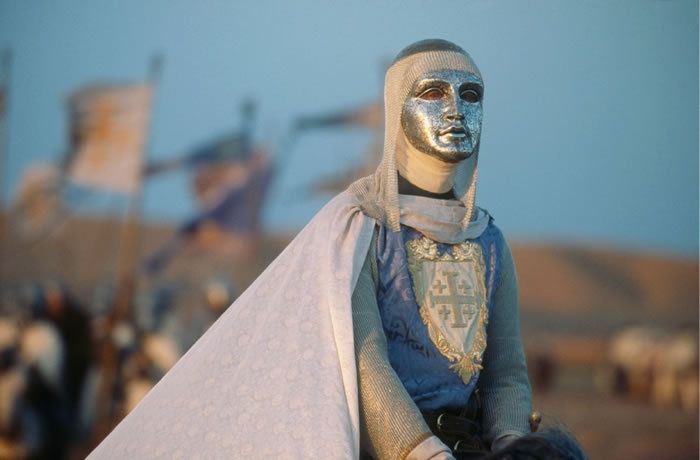
Ridley Scott maintains a career filled with a myriad of epics from ‘1492: Conquest of Paradise’, to sci-fi epic ‘Blade Runner,’ to ‘Gladiator’ and into the realm of man’s relationship with God or the gods. Many of these works conversely explore man’s own godliness, kings and figures of power, wealth, and those who oppose them.
Kingdom of Heaven, and speaking specifically of the director’s cut, explores these themes as well as how the characters moral responsibility (or lack of) can either inspire or poison entire nations.
The director’s cut retains not only much of the epic feel that was lost in the theatrical cut but also the quieter, more personal moments that are needed to build a natural character arc. As well as contrast the more bombastic savagery inevitable to the arrogant and, one might say, lost antagonist crusader Guy de Lusignan, played by Marton Csokas.
The film as an epic is nearly flawless, with rich visuals, focused direction, and well thought-out characters and actors. The one flaw many critics throw at this movie is the miscast of Orlando Bloom as Balian. This small misstep, however, does not detract from this film’s grand epicness and timeless moral message in times of confusion, doubt, and fear.
A thematic study on the calamity of the crusades that is countered in Godfrey’s dying creed to his son, “Be without fear in the face of your enemies. Be brave and upright that God may love thee. Speak the truth always, even if it leads to your death. Safeguard the helpless and do no wrong. That is your oath.”
7. The Lord Of The Rings Trilogy
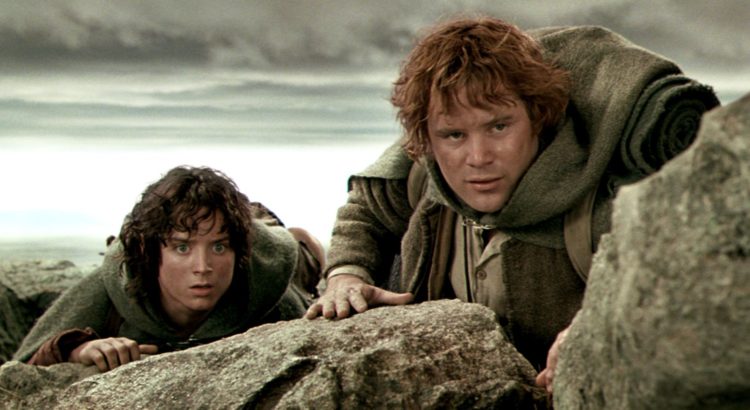
The Fellowship of the Ring opens with a history lesson. A history of a time long forgotten by any mortal man. “The world has changed,” a voice from the dark says softly. The narrative continues to weave an ever too familiar tale of deceit, greed, power, and corruption.
The story and film highlight these original sins found in all races across Middle-earth. There is one hope, however, who is humble enough, one who can bear the ring long enough to journey to the fires of Mt. Doom and destroy the ring. A small, jovial Hobbit who lives in a hole in the ground named Frodo.
It is true that Tolkien mirrored much of his experience from the War into this grand epic for the ages. It is a warning about power and corruption and how the beautiful lands and homes of common people can be made black with industry, war, and greed and overnight.
Peter Jackson fought for this film to be made for many years and was turned down by several studios at its sheer length alone. But when it was finally funded, it was clear that such an epic and ‘precious’ tale was placed into the right hands.
6. Once Upon A Time In The West
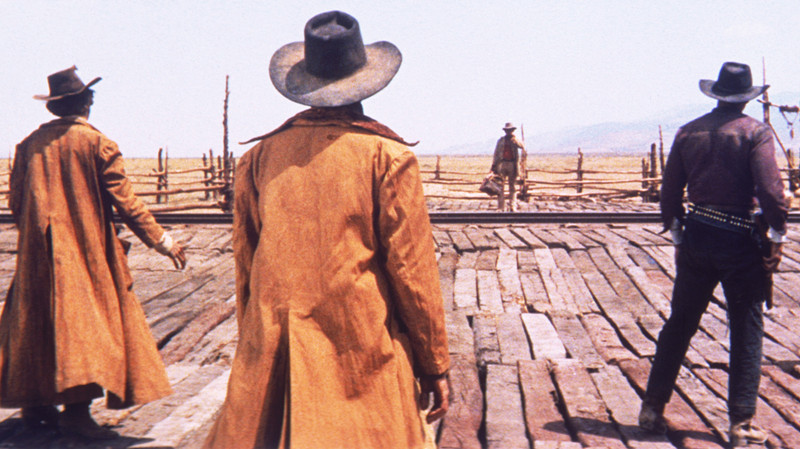
The western epic is a timeless and engaging genre. The history and beginning of the American West holds the capacity to contain mucho adventure, metaphor, and cinematic quality. It is no wonder many directors seek to try their hand and saddle up their horse, into the mystical lands of the open range.
Sergio Leone’s spaghetti western contains and delivers this mystical power and the themes of the old western epic with style and gusto. Once Upon A Time In The West really separates itself from Leone’s other westerns here as a more ascetic and elevated attempt.
Containing such themes that include a past that catches up with the characters is displayed in the revenge of Harmonica, played by Charles Bronson against the piercing blue eyes of Frank, played by Henry Fonda. As well as a theme of history moving out of the way to make room for new amenities and social constructs seen in the development of the railroad, boomtowns and the strong female character of Jill, played by Claudia Cardinale.
Bronson’s stoic stare and eerie notes played on the Harmonica, like the wailing of a ghost, are perfect for the long-suffered character. Henry Fonda plays against type as a ruthless villain, a fantastic chance worth taking. A brilliant move by both the actor and Leone. Overall, the film comes out as a classy, sophisticated, masterpiece and perhaps Leone’s magnum opus in a short list of directed movies, many of which remain as the greatest western films ever produced.